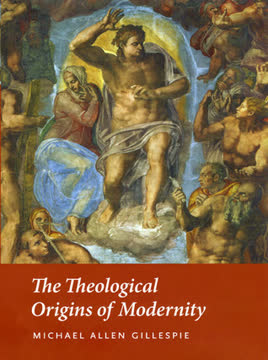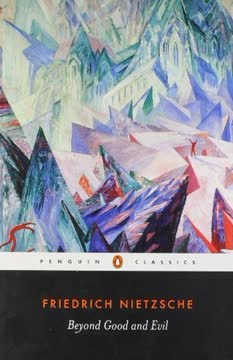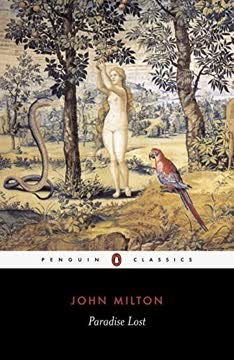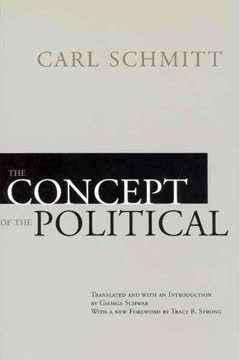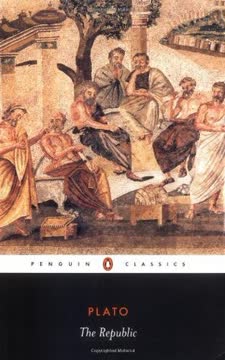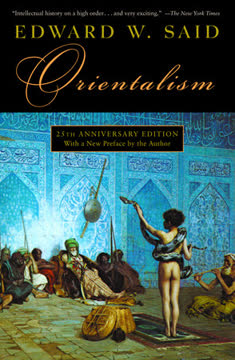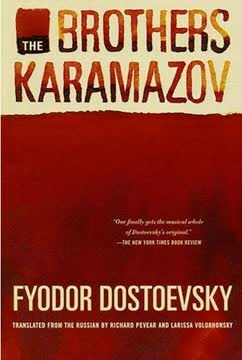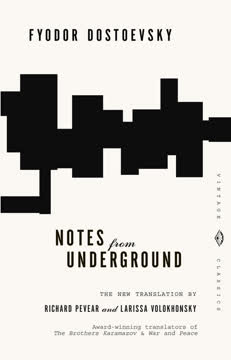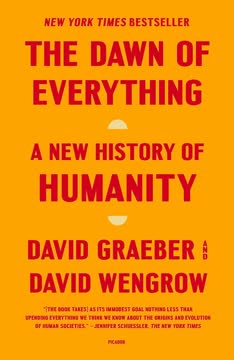Key Takeaways
1. Modernity's Roots Lie in Late Medieval Theological Crisis
Little did they or their contemporaries know that the different paths they followed from that mass and from Avignon would lead humanity into the modern age.
Beyond Secularization. Modernity didn't emerge solely from secularization or a clean break with the past. It arose from a profound metaphysical and theological crisis within Christianity during the late medieval period. This crisis, centered on the nature of God and being, shaped the intellectual landscape and set the stage for the modern world's defining questions.
Avignon as Crucible. The city of Avignon in 1326, with figures like William of Ockham, Francesco Petrarch, and Meister Eckhart, serves as a symbolic starting point. Their diverse responses to the era's intellectual and spiritual turmoil represent the seeds of modernity. The conventional narrative of modernity often overlooks the religious and theological underpinnings of this transformative period.
Epochal Question. The nominalist revolution created an "epochal" question that has guided human thought ever since. This question concerns the nature and relationship of God, man, and the natural world, and it continues to shape our thinking and action, often in ways we do not perceive or understand.
2. Nominalism Shattered the Medieval Synthesis
From this point of view, the world had a specific beginning, course of development, and end that was prefigured and revealed allegorically in Scripture.
Realism vs. Nominalism. Scholasticism, with its realist ontology, saw the world as an instantiation of divine reason, with universals as ultimately real. Nominalism, spearheaded by William of Ockham, challenged this view, asserting that only individual things are real, and universals are mere names.
Divine Omnipotence. Ockham emphasized God's omnipotence and unpredictability, undermining the scholastic synthesis of reason and revelation. This new vision of God created a sense of chaos and uncertainty, as the world was no longer seen as teleological or governed by immutable laws.
Consequences of Nominalism:
- Rejection of syllogistic logic and science
- Emphasis on individual experience and revelation
- A new understanding of human freedom
The nominalist revolution shattered the medieval worldview, leaving a void that subsequent thinkers attempted to fill with new metaphysical and theological frameworks.
3. Humanism Elevated the Individual, Apolitically
He was Francesco Petrarch. Like Ockham, Petrarch rejected scholasticism as overly rationalized, but he was also repulsed by the nominalists’ endless arguments about terms and what he saw as vapid speculation about divine power.
A New Focus. Petrarch, a key figure in the rise of humanism, sought to revive ancient moral virtue and create a new ideal of human individuality. He rejected both scholasticism and nominalism, seeking a synthesis of Christian practice and classical thought.
Individual over Political. Humanism, unlike ancient thought, placed the individual at the center, emphasizing self-mastery and self-perfection. This focus on the individual was largely apolitical, with virtue seen as attainable outside of political life.
Humanism's Debt to Nominalism. Humanism, despite its focus on classical sources, owed a debt to nominalism's emphasis on the individual. Humanists saw humans as characterized by free will, a self-creating force, mirroring the nominalist God.
4. The Reformation Prioritized God, Sparking Conflict
Luther’s answer to the question of indulgences was thus his answer to the problem of the nominalist God: “faith alone saves.”
Luther's Reformation. Martin Luther, reacting to the uncertainties of nominalism and the corruption of the Church, sought a return to a more original Christianity based on faith alone. He emphasized the importance of Scripture and the direct relationship between God and the individual.
Faith Alone. Luther's doctrine of "faith alone saves" challenged the Church's emphasis on works and sacraments. He saw faith as a gift from God, a will to union with God, accessible through Scripture.
Conflict with Humanism. The Reformation, with its emphasis on divine omnipotence and human sinfulness, clashed with the humanist vision of human potential and self-mastery. This conflict led to the Wars of Religion, as different factions struggled for religious and political dominance.
5. Modernity Sought Resolution in Nature, Dividing Further
Modernity proper in this way begins with the goal of developing a science that will make man master and possessor of nature.
A New Path. In the wake of the conflicts between humanism and the Reformation, some thinkers sought a new path by focusing on the natural world. Modernity, in its narrow sense, emerged as an attempt to resolve the theological and political conflicts by asserting the ontic priority of nature.
Science as Solution. The goal of this new approach was to develop a science that would make man master and possessor of nature. This project was deeply indebted to nominalism, which had shattered the medieval view of a harmonious, teleological cosmos.
Naturalistic Beginning. Modernity sought to reconstruct the world as a natural object, but this new naturalistic beginning could not eliminate the antagonism at its heart without eliminating either God or man. This tension would continue to shape modern thought.
6. Descartes Championed Reason, Empowering the Subject
Man for Descartes becomes master and possessor of nature by dispossessing its current owner, that is, by taking it away from God.
Cartesian Dualism. Descartes sought to build a new foundation for knowledge based on reason and the autonomous subject. His famous "cogito ergo sum" established the self as the starting point for all understanding.
Man as Master. Descartes envisioned man as becoming master and possessor of nature through the application of reason and science. This project involved a displacement of God, as man sought to take control of the natural world.
Infinite Will. Descartes's notion of science rests on a new notion of man as a willing being, modeled on the omnipotent God of nominalism. This emphasis on the infinite human will, however, created a tension between man's natural limitations and his aspirations for mastery.
7. Hobbes Prioritized Order, Grounding Politics in Fear
Man for Hobbes is a piece of nature, a body in motion.
Materialism and Mechanism. Hobbes, in contrast to Descartes, saw man as thoroughly natural, a body in motion governed by the laws of physics. He rejected the notion of a separate, immaterial soul, emphasizing the importance of self-preservation and the avoidance of violent death.
Fear as Foundation. Hobbes grounded his political philosophy in the fear of death, arguing that this fear motivates individuals to create a social contract and submit to a sovereign power. The sovereign's role is to maintain order and security, even through the use of force.
Limited Freedom. Hobbes denied the existence of free will, arguing that human actions are determined by a chain of causes. He sought to maximize human freedom by organizing society in a way that minimized external constraints and allowed individuals to pursue their desires within the bounds of law.
8. The Enlightenment's Contradictions Led to Crisis
The modern project, first conceived in the seventeenth century, had in fact enormously increased human power in precisely the ways Bacon, Descartes, and Hobbes had imagined, but it had not produced the peace, freedom, and prosperity they had predicted.
The Enlightenment Project. The Enlightenment sought to build on the foundations laid by Descartes and Hobbes, promoting reason, progress, and human autonomy. However, the Enlightenment project was plagued by contradictions and tensions.
Kant's Antinomies. Immanuel Kant identified key antinomies, or contradictions, within Enlightenment thought, particularly the conflict between nature and freedom. He demonstrated that nature and freedom as modernity had conceived them could not coexist, that their relationship was necessarily antinomious.
The French Revolution. The French Revolution, with its initial promise of liberty and equality, descended into violence and terror, exposing the limitations and dangers of Enlightenment ideals. The French Revolution, with its extravagant claims for the rule of reason and its abysmal realization of these claims in the Terror, only made these limitations of the modern project publicly apparent.
9. Theological Commitments Persist, Concealed in Secularity
Modernity, as we understand and experience it, came to be as a series of attempts to constitute a new and coherent metaphysics/theology.
Secularization as Concealment. The apparent secularization of modernity often conceals the persistence of theological commitments and assumptions. Modern thought, even in its most secular forms, continues to grapple with questions about the nature of God, man, and the universe.
Transference of Attributes. The attributes of God, such as omnipotence, omniscience, and benevolence, are often transferred to other entities, such as reason, nature, or humanity itself. This transference creates new forms of belief and value that shape modern thought and action.
Understanding Our Origins. To understand the challenges and possibilities of our current situation, we must confront the theological origins of modernity and the decisions that shaped our way of life. This requires a greater understanding of our own religious and theological beginnings, not because ours is the only way, but in order to help us understand the concealed wellsprings of our own passions as well as the possibilities and dangers that confront us.
Last updated:
FAQ
What is The Theological Origins of Modernity by Michael Allen Gillespie about?
- Theological roots of modernity: Gillespie argues that modernity is not a purely secular or rational development but is deeply rooted in theological and metaphysical struggles within late medieval Christianity.
- Transformation of key concepts: The book traces how debates about God, human will, and nature shaped the emergence of modern philosophy, science, and politics.
- Historical and philosophical analysis: Gillespie examines the influence of nominalism, humanism, the Reformation, and early modern thinkers, showing how theology underpins modern metaphysics and political order.
Why should I read The Theological Origins of Modernity by Michael Allen Gillespie?
- Nuanced understanding of modernity: The book provides a rich, interdisciplinary account of how theological debates continue to shape contemporary thought and global challenges.
- Insight into religious antimodernism: Gillespie’s analysis helps explain why some religious groups resist modernity, not just due to its failures but because of its foundational assumptions.
- Bridging disciplines: Readers interested in philosophy, theology, history, and political science will find Gillespie’s approach valuable for understanding the enduring tensions between faith, reason, and freedom.
What are the key takeaways from The Theological Origins of Modernity by Michael Allen Gillespie?
- Modernity’s theological origins: Modernity’s core ideas about reason, freedom, and individuality are deeply shaped by theological crises, especially those arising from nominalism and the Reformation.
- Enduring metaphysical tensions: The unresolved conflict between divine omnipotence, human freedom, and natural necessity underlies many contradictions in modern thought.
- Secularization as concealment: Modern science and politics often conceal their theological roots, transferring divine attributes to humans, nature, or history.
- Contemporary relevance: Understanding these origins is crucial for navigating current cultural, political, and religious conflicts.
What is the nominalist revolution and why is it significant in The Theological Origins of Modernity by Michael Allen Gillespie?
- Rejection of universals: Nominalism, led by thinkers like William of Ockham, denied the real existence of universals, asserting that only individual beings are real.
- Radical divine omnipotence: It emphasized God’s absolute freedom and unpredictability, undermining the medieval synthesis of reason and revelation.
- Foundation for modernity: This shift set the stage for later theological and philosophical developments, influencing humanism, the Reformation, and the rise of modern science.
How does Michael Allen Gillespie describe the role of humanism in the development of modernity?
- Cultural and educational movement: Humanism emphasized human dignity, individuality, and moral philosophy, drawing on classical antiquity and Christian piety.
- Italian vs. Northern humanism: Italian humanism focused on heroic individuality and Neoplatonism, while Northern humanism, exemplified by Erasmus, was more moderate and scripturally grounded.
- Tensions with Christianity: Humanism struggled to reconcile pagan and Christian values, often downplaying original sin and emphasizing free will, which brought it close to Pelagianism.
How does The Theological Origins of Modernity by Michael Allen Gillespie explain Martin Luther’s impact on modernity?
- Radical theological reform: Luther’s Reformation responded to the nominalist crisis by emphasizing salvation by faith alone, grace alone, and Scripture alone.
- Transformation of God’s image: He reinterpreted the terrifying, omnipotent God of nominalism as a merciful savior accessible through faith.
- Individual faith and freedom: Luther’s theology challenged church authority, promoted the priesthood of all believers, and introduced a new understanding of individual faith that influenced modern religious and political thought.
What is the significance of the Erasmus-Luther debate on free will in Gillespie’s analysis?
- Clash of theological visions: The debate highlights the divide between humanist optimism (Erasmus) and Reformation determinism (Luther) regarding human freedom and divine sovereignty.
- Erasmus’s moderate skepticism: Erasmus advocated for a cooperative role of human will with grace and moral responsibility.
- Luther’s absolute determinism: Luther denied human freedom in spiritual matters, emphasizing the bondage of the will and God’s absolute sovereignty, which led to a more conflict-prone religious outlook.
How does Michael Allen Gillespie characterize the contributions of Descartes and Hobbes to modernity?
- Descartes’ dualism and subjectivity: Descartes posited a dualistic human nature (mind and body), grounding science and freedom in a quasi-divine human subject.
- Hobbes’ materialism and determinism: Hobbes saw humans as bodies in motion, governed by mechanical causality and fear, requiring sovereign authority for peace.
- Contrasting views on freedom: Descartes affirmed human freedom beyond natural causality, while Hobbes denied free will, reflecting the enduring tension between voluntarism and determinism in modern thought.
What is the ‘metaphysical crisis’ or ‘antinomy of pure reason’ discussed in The Theological Origins of Modernity by Michael Allen Gillespie?
- Conflict between freedom and necessity: The crisis arises from the tension between divine omnipotence, human freedom, and natural causality, which modern thinkers like Descartes and Hobbes tried to resolve in different ways.
- Kant’s antinomy doctrine: Kant showed that the contradiction between freedom and necessity is logically irresolvable within modern metaphysics.
- Central to modern crisis: This antinomy underlies the contradictions of modernity, shaping debates about science, morality, and political order.
How does The Theological Origins of Modernity by Michael Allen Gillespie address the relationship between modern science and theology?
- Science rooted in nominalism: Modern science emerged from nominalist ontology, which rejected universals and emphasized empirical investigation of individual entities.
- Theological interpretations of science: Rationalism saw nature’s laws as expressions of divine will, while materialism ignored God, but both approaches stemmed from nominalist premises.
- Concealed theological core: Modern science, though seemingly secular, retains a metaphysical and theological foundation that shapes its understanding of nature and human freedom.
How does Michael Allen Gillespie interpret the Enlightenment and its aftermath in relation to modernity?
- Enlightenment as a phase: The Enlightenment built on earlier modern foundations, emphasizing reason, progress, and freedom.
- Kant’s critical project: Kant tried to resolve the contradictions of reason by distinguishing between the phenomenal (nature) and noumenal (freedom) realms.
- Limits and failures: The Enlightenment’s optimism was undermined by persistent contradictions, political violence (e.g., the French Revolution’s Terror), and the ongoing crisis of modernity.
How does The Theological Origins of Modernity by Michael Allen Gillespie compare Islamic theological traditions with Western Christian modernity?
- Fundamental theological differences: Islam emphasizes the absolute difference between God and man, with submission as its core, rejecting the incarnation and human quasi-divinity central to Christian humanism.
- Ash’arite vs. Mu’tazilite schools: Ash’arite theology, dominant in Islam, stresses radical divine omnipotence and occasionalism, paralleling Christian nominalism but with distinct emphases.
- Impact on modernity and humanism: Islamic theology’s focus on divine omnipotence and rejection of humanism contrasts with Western modernity’s roots in Christian humanism, explaining some tensions between Islamic fundamentalism and Western liberalism.
Review Summary
The Theological Origins of Modernity examines how Christian theological debates shaped modern thought. Reviewers praise Gillespie's comprehensive analysis of key figures like Petrarch, Luther, Descartes, and Hobbes, tracing the impact of nominalism on Western philosophy. Many found the book intellectually challenging but rewarding, offering fresh insights into modernity's religious roots. Some critics noted the dense writing and occasional lack of clarity on central concepts. Overall, readers appreciated the book's ambitious scope and its reframing of secularization as a transfer of divine attributes to human and natural realms.
Similar Books
Download PDF
Download EPUB
.epub digital book format is ideal for reading ebooks on phones, tablets, and e-readers.
